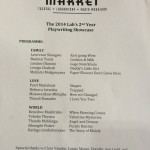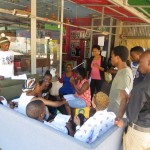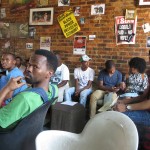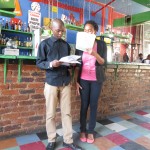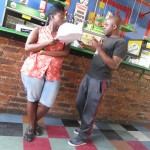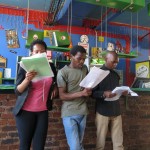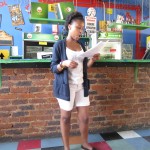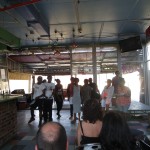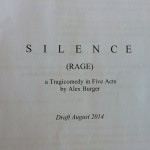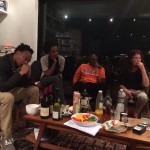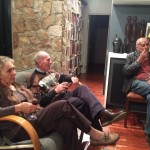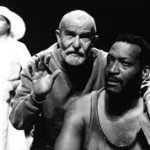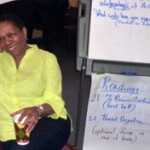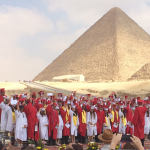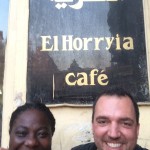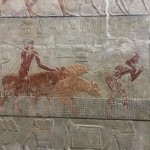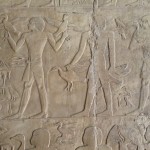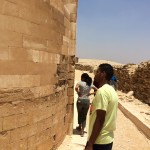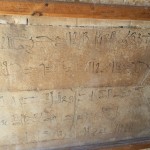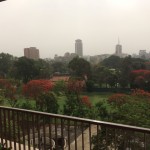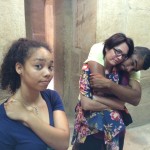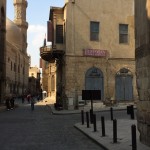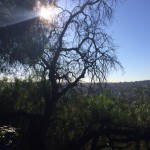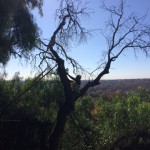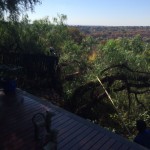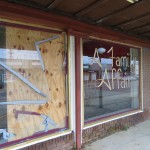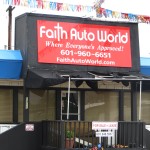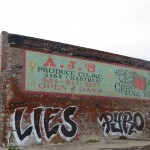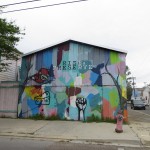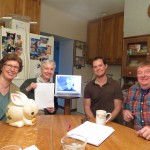A friend sent a poem called “Le Souffle des Ancetres” (The Breath of the Ancestors) which I spent the morning translating it into English. This helped in the mourning process, I felt closer to Jo, connected through creativity. Here is my rough translation and the original french.
The Breath of the Ancestors
by Birago Diop
Listen more often
to things than to beings
the voice of the fire
the water that speaks
the voice of the wind
the bush that weeps
this is the ancestor’s breathing
Those who have died are not gone
they are in the darkness around
the darkness that fades
the dead are not underground
they are in tree that shivers
the woods that quiver
the water that runs loud
in a hut, in a crowd
the dead are not dead
Listen more often
to things than to beings
the voice of the fire
the water that speaks
the voice of the wind
the bush that weeps
this is the ancestors breathing
The breath of the ancestors
who are not gone
who are not underground
who are not dead
those who have passed are not gone
they are in a woman’s breast
in a child’s wailing song
in the coals that won’t rest
the dead are not underground
they are in the fire that burns
in the rock that yearns
in the grasses that weep
in the forest, at home when we sleep
the dead are not gone
Listen more often
to things than to beings
the voice of the fire
the water that speaks
the voice of the wind
the bush that weeps
this is the ancestors breathing
Each day they renew
their pact with us
the pact that binds
this breath to our kind
our dead are not dead
this pact binds us to life
this law that binds us to breath
breath, even as we reach our death
In the bed of the river or on its banks
is the spirit that gives many thanks
in the rocks that yearn and the grasses that weep
we find the spirit that keeps
in the darkness that around that will fade
the trees the shiver, the woods that quiver
in the water than runs, the water that rests
are the spirits that bless
they are not dead
they dead are not gone
they dead are not underground
Listen more often
to things than to beings . . .
.
Le Souffle des Ancetres
par Birago Diop
Ecoute plus souvent
Les choses que les êtres,
La voix du feu s’entend,
Entends la voix de l’eau.
Ecoute dans le vent
Le buisson en sanglot:
C’est le souffle des ancêtres.
Ceux qui sont morts ne sont jamais partis
Ils sont dans l’ombre qui s’éclaire
Et dans l’ombre qui s’épaissit,
Les morts ne sont pas sous la terre
Ils sont dans l’arbre qui frémit,
Ils sont dans le bois qui gémit,
Ils sont dans l’eau qui coule,
Ils sont dans la case, ils sont dans la foule
Les morts ne sont pas morts.
Ecoute plus souvent
Les choses que les êtres,
La voix du feu s’entend,
Entends la voix de l’eau.
Ecoute dans le vent
Le buisson en sanglot:
C’est le souffle des ancêtres.
Le souffle des ancêtres morts
Qui ne sont pas partis,
Qui ne sont pas sous terre,
Qui ne sont pas morts.
Ceux qui sont morts ne sont jamais partis,
Ils sont dans le sein de la femme,
Ils sont dans l’enfant qui vagit,
Et dans le tison qui s’enflamme.
Les morts ne sont pas sous la terre,
Ils sont dans le feu qui s’éteint,
Ils sont dans le rocher qui geint,
Ils sont dans les herbes qui pleurent
Ils sont dans la forêt, ils sont dans la demeure,
Les morts ne sont pas morts.
Ecoute plus souvent
Les choses que les êtres,
La voix du feu s’entend,
Endents la voix de l’eau.
Ecoute dans le vent
Le buisson en sanglot:
C’est le souffle des ancêtres.
Il redit chaque jour le pacte,
Le grand pacte qui lie,
Qui lie à la loi notre sort;
Aux actes des souffles plus forts
Le sort de nos morts qui ne sont pas morts;
Le lourd pacte qui nous lie à la vie,
La lourde loi qui nous lie aux actes
Des souffles qui se meurent.
Dans le lit et sur les rives du fleuve,
Des souffles qui se meuvent
Dans le rocher qui geint et dans l’herbe qui pleure.
Des souffles qui demeurent
Dans l’ombre qui s’éclaire ou s’épaissit,
Dans l’arbe qui frémit, dans le bois qui gqmit,
Et dans l’eau qui coule et dans l’eau qui dort,
Des souffles plus forts, qui ont prise
Le souffle des morts qui ne sont pas morts,
Des morts qui ne sont pas partis,
Des morts qui ne sont plus sous terre.
Ecoute plus souvent
Les choses que les êtres….

